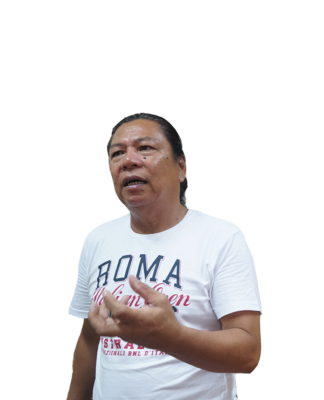HEED the “whispers of the Holy Spirit.”
In his homily during the annual Misa de Apertura, which officially opens the new academic year, Antipolo Auxiliary Bishop Francisco de Leon advised Thomasians to read the Bible every day and have a deep prayer life to become sensitive to the Holy Spirit’s calls and to resist the evils of the world.
"If it (prayer) becomes your habit, you (will) become more sensitive to the whispers of the Holy Spirit, making it easier to avoid temptations from the devil," De Leon, chairman of the Catholic Bishops’ Conference of the Philippines (CBCP) Episcopal Commission on Catechesis and Catholic Education, said last July 7.
He added that the Holy Spirit, aside from its other roles, should be treated as a “coach” in life in order to be successful.
“The Holy Spirit is there to guide us [to] the teachings of the Lord. We need the Holy Spirit in our journey whether as a student or a teacher,” he said.
After the Opening Mass at Santisimo Rosario Parish Church, the CBCP Episcopal Commission on Health Care (ECHC) gave a plaque of recognition to the University for providing exemplary healthcare, not only to Thomasians but also to those in need, and imparting healthcare in education.
“UST has made a great impact in the life of the Catholic Church in the Philippines through its reforms in universal health coverage, service delivery, public policy, and leadership,” CBCP-ECHC Executive Secretary Fr. Rodolfo Vicente Cancino said. “In the curriculum of UST, you have mainstreamed healthcare as an important part of education not only among medical courses but also in other courses, ranging from physical health, to mental health, and spiritual health.”
Fr. Rector Herminio Dagohoy, O.P. said the recognition is proof of Thomasians practicing their values.
“We are honored because [this] is a confirmation of our values as Thomasians,” Dagohoy said in an interview with the Varsitarian.
Meanwhile, Faculty of Engineering Dean Philippina Marcelo emphasized the significance of Outcome-Based Education (OBE) in improving educational standards in the Discurso de Apertura.
“OBE is a system designed to globalize education. Educators in many countries agree that OBE is the most effective system to achieve a match between education and practice,” she said, noting that field practitioners should be the one to mentor students.
“Mentors guide students, allowing them ‘regulated freedom’– in exploring their strengths and capabilities for learning, in connecting the dots to arrive at the answer on their own, in using research and technology resources effectively to facilitate learning, and in collaborating with their peers to challenge the soundness of their ideas,” she said. Moreover, Marcelo said OBE helps in faculty development, research, admissions, professional credentials of support staff, and other exploratory ventures.
Engineering adopted the OBE format in their curriculum last year. Dayanara T. Cudal and Bianca Kristin A. Taray
















